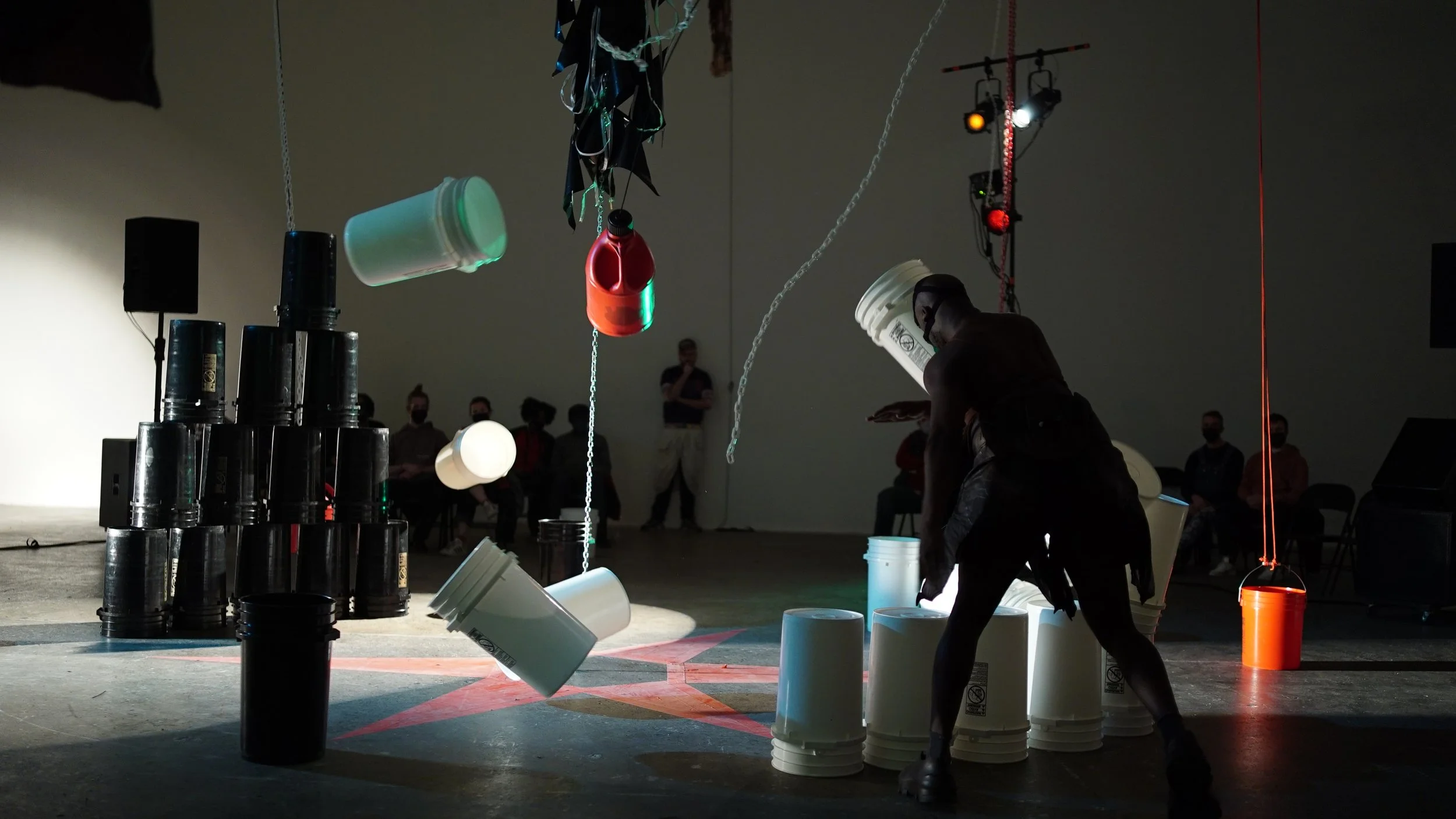EQUATORS PERFORMANCE INSTALLATION 2021
Image by Adrian Martinez Chavez
Costume design: Domsentfrommars
Image auxiliary support Kevin Hernandez Rosa
A visual exploration of the effects of climate change seen through the lens of racist social and historical practices that have displaced communities of color, such as segregation, re-zoning, gentrification, and redlining.
DEC 17 Fri • 7:00p & DEC 17 Fri • 9:00p
DEC 18 Sat • 7:00p & DEC 18 Sat • 9:00p
ICEBOX PROJECT SPACE (Crane Arts) , Philadelphia PA
1400 N. American St Philadelphia, Pa 19122
This project received funding from the Penn Treaty grant & philadelphia office of the arts & culture. Special Thank you to our sponsors Vox Populi !
Performed in four waves over three days, EQUATORS made in collaboration with Installation Artist David Borawski and Lighting designer Jon-Paul LaRocco, argues that environmental justice is a major form of racial injustice targeting how climate structures influence expectations for quality of life, order, territory and how racial divides are manifested in homes, neighborhoods, and geography due to social and racial impacts such as police brutality. Audience members who attend this work will be asked to interrogate their expectations of climate, human-made boundaries, police violence, bodies living on top of one another, anthropomorphism, queer ecology and environmental waste. The solo developed and performed by choreographer Arien Wilkerson is a conversation developed from out of the essay “Operation Astra” written by Roland Barthes. EQUATORS feature seven diagrams. The diagrams represent black bodies of land, white bodies of land as well as homes in relationship to the climates seen through movement, sound, destruction and conversation. Throughout the performance EQUATORS will depict how the most marginalized populations on earth experience the adversity associated with weather related natural disasters, environmental waste, zoning policies and salutogenic ways of living. The imagery is propulsive, and pugnacious revealing how our emotional, mental, physical and spiritual well being is affected by our environment, the deaths that take place in those environments or climates and how we react to human made boundaries due to environmental unawareness. The work harnesses anthropomorphism, so If a hurricane knew it was killing thousands of people, if wildfires knew it was destroying homes, If earthquakes knew when they were going to plummet people into the ground would they still do it? Could they control it?
EQUATORS forces you to remember toxic air quality, removal of land by redlining, slum clearance, eminent domain by giant re-construction, Philadelphia's flooding, and the way poverty is penalized through environmental means, like leaded water and buses that still use diesel fuel. With stacks of white and black industrial buckets, chains hanging from the ceiling, startling effects that viscerally simulate the presence of climate, destruction, and police presence, Equators is an electrifying display of powerful historical concepts infused with performance and stripped of any didacticism. The work is equally rooted in intersectional politics and deep-dive journalism. Of the piece’s primary sources was an Economic Policy Institute study called “The Making of Ferguson: Public Policy at the Root of Its Troubles” by the academic Richard Rothstein, which traces the police murder of Mike Brown in Ferguson, Missouri, in 2014 from an individual act of racism to a long history of segregationist legislation. Numerous contemporary studies show that communities of people of color face increased health risk due to pollution and natural disaster around the world. In parts of the U.S., they experience a lack of access to “salutogenic resources” like grocery stores, open spaces, clean water, hospitals, etc. The salutogenic model proposes that the goal of health research should be to identify, define, and describe pathways, factors, and causes of positive health to supplement our knowledge about how to prevent, treat, and manage negative health. Expanding the sociological concept of salutogenic resources to the possession of a vocabulary, a performance, and a world clinging for it's life EQUATORS is here and understands the stakes of climate change itself.


